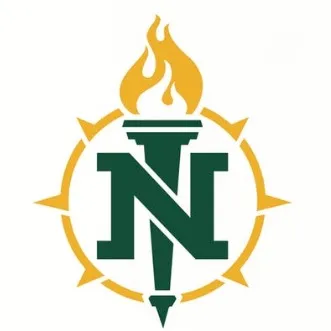Northern Michigan University's Department of Social Work has received a grant of nearly $450,000 over three years to support Walking the Path Together, a program designed to reduce barriers to hiring and maintaining staff in tribally run victim services programs in the Upper Peninsula.
The timely award, announced shortly before Indigenous Peoples' Day and during Domestic Violence Awareness Month, will help NMU build upon the goals supported through a previous $450,000 grant from the same source: the U.S. Department of Justice, Office for Victims of Crime.
Five federally recognized tribes in the Upper Peninsula cited university-level degrees and specialized training, ideally in human services fields such as social work, as keys to increasing the sustainability of qualified staffing in victim services programs. But financial and travel barriers often prevent prospective Native American students from leaving their tribal communities to advance their education.
Sarah Carlson, NMU social work professor and principal investigator for the project, said NMU is collaborating with tribal and community colleges, as well as other U.P. universities, to reduce those logistical barriers.
“We want to create a pathway for Native American and other students to achieve four-year or graduate degrees in social work with specialized knowledge in tribal victim services,” Carlson said. “This will include recruitment events, standardized on-site training, and both year-long and shorter-term paid student internships within U.P. tribally run victim services programs. Northern has listened to the voices and needs of U.P. tribal communities and is working to address the challenges of recruiting and retaining professionals who provide these vital services.
“There were 30 people with diverse perspectives who contributed to this proposal, including tribal community and education partners, two NMU graduate students and Uniting Three Fires Against Violence, a collaborative of all tribal victim services programs in Michigan. One thing I learned through the application process is that we need to do our best to decolonize the way we teach and practice social work. We can't just assume the need is the same in every community and that the way we typically do things works for all applications and for all individuals.”
The student-focused aspects of the proposal include support for a steadily increasing number of mini-internships, beginning with six in year one and ending with 12 in year three. There will also be up to two bachelor of social work (BSW) and master of social work (MSW) placement fellowship awards per year.
Ethan Chapman, a student in the first cohort of Northern's new MSW program, completed an internship with Hannahville Indian Community last year as part of the first grant-funded project. One of his projects was to organize a parade around the theme of missing and murdered Indigenous women to increase awareness of the issue.
“I also worked directly with victims of crime and learned a lot about the various jurisdictional issues associated with that,” Chapman said. “And I learned how much spirituality factors into practice; more than it typically does for non-Native cultures. Each tribe has a different culture, but they are similar in historical backgrounds and contexts. Our course work emphasizes the concept of cultural humility, and that applied to my internship. It's about understanding your place in another culture and respecting that in a way that's best for the people you're working with. It's important to listen and provide help according to the needs they express, not based on your own idea of what kind of help they need. This changed my whole perspective on practicing social work.”
Abigail Wyche, head of NMU's Social Work Department, co-wrote the first successful grant request three years ago with April Lindala of the Center for Native American Studies. Their “Serving Native Survivors Circle” project focused more on increasing inclusion in the curriculum and developing a two-year Native American community services associate degree that combines social work and Native American studies courses.
“I am very proud of the work Sarah and her team of collaborators have already done on this project, because this new funding will only strengthen NMU's connections to our local Indigenous communities,” Wyche said. “The Walking the Path Together program provides a clear pathway, incentives and hands-on experience to students, both Native and non-Native, who seek careers in tribal victims services. Now more than ever, culturally humble professionals are needed to prevent victimization, and to help victims heal from their trauma. I am glad that the Social Work Department will continue to be supported by the Department of Justice in educating those future professionals.”
Find more information on NMU's social work academic programs here.

